The Azalea Belles: Southern charm or troublesome tradition?
Editor’s Note: This article was originally published on March 15, 2018.
The Azalea Festival and the Cape Fear Garden Club have held a tradition since 1969 where young girls don Antebellum era attire and assume the roles of the Azalea Belles.
The Belles, who represent the festival season and flowers, act as hostesses for the Garden Tour and they “enhance the beauty of several activities,” according to the Cape Fear Garden Club’s website.
To become a Belle, one must fit into the following criteria: be an eleventh or twelfth-grade student at a New Hanover County school (the CFGC prioritizes NHC students, but surrounding areas may apply); a Belle may only serve for one year, no more than that; and, if you are a Belle, you cannot participate in the Azalea Festival Scholarship Pageant in the same year. The daughters and granddaughters of Garden Club members may “reside out of town” and are still given priority status.
Harley Vance, a former president of the Cape Fear Garden Club, started the tradition of the Cape Fear Garden Club Azalea Belles participating in the North Carolina Azalea Festival Garden Tour in 1969. “Seven young ladies, five of whom were daughters of club members, wore hoop-skirted antebellum dresses that year as their costumes for the Confederate Ball,” according to the Cape Fear Garden Club’s website.
One former Belle, Justine Orlovsky-Schnitzler, recalled her time as a member of this local tradition and shared her opinions surrounding the institution in a memoir piece for The Bitter Southerner called “The Life Cycle of an Azalea Belle.”
Orlovsky-Schnitzler explained that the Azalea Festival and Belle tradition is pretty ubiquitous in the area.
“If you grow up in Wilmington, it’s difficult to not be aware of the festival, if not the inner workings and the process of becoming a Belle,” she said. In high school, fellow classmates talked about this tradition. Local papers advertised the Belles and advertisements hung in school hallways. Orlovsky-Schnitzler had friends participating and felt as though it may be something she should do as well. Though, she now has different opinions about being a part of this tradition.
“I didn’t think critically about what racist and classist tropes the whole event perpetuated because I had room for disconnection afforded to me by my skin color,” she wrote. She also wrote that “toying with the idea of participating in a festival that celebrates such an era is a perverse privilege.”
The intention of the festival is to celebrate the azalea flowers that bloom each spring in the area. However, as she wrote, “…there was something about the colors, juxtaposed with the scraggly pines and wide oaks, that invoked plantation living…The whole affair was punctuated by using local high schoolers as living lawn ornaments.”
As Orlovsky-Schnitzler became a “more radicalized feminist in college,” she said that she began to think, “Oh gosh, I actually spent three days of my life as a garden object and in the heat and in those frills.”
She wrote that now she realizes that traditions like this “enable the worst of femininity, of whiteness, and of Southern stereotypes, wrapped in an oversized, pastel, dress ribbon.”
“Friends would say, ‘Oh, well I’m a Belle. That’s different; that’s historical,’” Orlovsky-Schnitzler “But in many ways, it is very similar. In my harsh terms, you are a living lawn ornament. You can surely make polite conversation with people passing through the garden, but you are an object and a fixture of beauty in a garden. It is an interesting thing to grapple with.” Someone cannot be both a Belle and a part of the pageant.
Orlovsky-Schnitzler came to see this tradition in a new light when she said that she examined her own privileges. “It sounds kind of hack, but I think I had a sense, I obviously knew,” Orlovsky-Schnitzler said. In the pamphlet one receives prior to becoming a Belle, it reads that Belles will wear Antebellum period dresses, which invokes that time period and old sentiments surrounding it.
“Being a white person, I did not think of any ramifications for the Antebellum period or what that symbolized,” Orlovsky-Schnitzler said.
Deborah Dicks Maxwell was watching a documentary on a slave named Josiah Henson when The Seahawk called her to speak about this memoir piece. Maxwell is the current branch president of the New Hanover County National Association for the Advancement of Colored People [NAACP]. She has not been to an Azalea Festival in over two decades because of the lack of inclusion expressed throughout the entire festival, according to Maxwell.
“I truly don’t care for it,” Maxwell said about the Azalea Belle tradition. Maxwell has a daughter who was encouraged to participate in the tradition by others. Maxwell explained that she stopped her daughter from participating because it “reeks of the Antebellum South.”
“We must recognize our history,” Maxwell said. “But sometimes all we have to do is recognize it, not really play into it — which is what we do when we have young girls dressed in these Antebellum outfits when people were enslaved during that time. When there was white supremacy in 1898. Yet some people wish to do that.”
Maxwell said this tradition and the festival as a whole has an impact on minorities within the Wilmington community. While the Azalea Festival generates revenue from tourism, Maxwell said that the city and this festival have “collectively not been inclusive.” She acknowledged that there is a multicultural festival, but said that within Wilmington there are two “outstanding blacks generals” who have never been offered to be a Grand Marshal of the Parade. “It’s not all that it pretends to be.”
In terms of the festival, of the 70 women asked to be N.C. Azalea Festival Queens five have been women of color: Phylicia A. Rashad in 1985; Dari Alexander in 2004; Tanisha Lynn in 2006; Amprapali Ambegaokar in 2009; and Ericka Dunlap in 2012.
Maxwell also said that the Garden Club policy that allows legacy attendance as a priority “ensures that the program will not be representative of the diversity of the program as the Garden Club is primarily Caucasian.”
“Anything you see visually does impact you,” Maxwell said. “Whether we verbalize it or not, but there are also African American parents who participate in this, too.”
Maxwell then said that there is another aspect to this tradition to consider: the socioeconomics of those participating. Maxwell said that most, even families of color, who let their children become Belles are from the middle class; they can afford the costumes. “It is not for those who do not have funds.”
One of the shops that have helped to construct the dresses for the Belles is Drapery World in Wilmington, N.C. Though The Seahawk could not find a website with dress prices, an online search for Antebellum inspired dresses showed that they can cost anywhere from $80-500.
Maxwell said that she does not think that this tradition will ever be made equitable, across race and socioeconomic background. “They are going to have to come up with a lot of funds if they are going to do that because there are people who may want to [participate]. We must give everyone their right to self-determination…while I am not for it, that may be what they want to do.” Regardless of ethnicity, Maxwell said that not everyone who wants to become a Belle has the means to do so.
“It’s just not a good thing,” Maxwell said. “The Azalea Festival needs to come up to 2018.”
The Azalea Belle tradition takes us back to a time where things were not the best for African Americans, Maxwell said. “The fact that no one here wishes to recognize what that looks like is a travesty. No one wants to speak up and change Wilmington, they only want to make it acceptable for certain individuals.”
The Azalea Festival needs to invite Reginald Clemmons and Joseph McNeil, according to Maxwell. Clemmons and McNeil were members of the Greensboro sit-ins from Feb. 1 to July 25, 1960.
“You could still have a scholarship program, you could still have the young ladies at the Garden Club. But you don’t have to have them go through all of this expense of purchasing southern dresses…Who’s benefiting from that? No one,” Maxwell said. “Do something that is more beneficial to the whole community; make it more accessible to the whole community.”
As for Orlovsky-Schnitzler, it was not an exciting experience. Though, she knows it was for some. That was one of her biggest problems with writing this piece, the fact that some thought that she was speaking for everyone when that is not the case. It is a memoir piece, she explained, it may not be universal. However, Orlovsky-Schnitzler said that, in writing this, people she went to high school with disclosed that they had felt the same way about this tradition.
Orlovsky-Schnitzler said that it was interesting to read comments on her piece asking why she participated in the Azalea Belle tradition in the first place if she was not a fan. She said that sometimes opinions change years down the line. “You do something and then you think more critically about it.”
The question that Orlovsky-Schnitzler hopes to pose with this piece is, “What do we want to portray our town as being like?”
“I hope people think critically about what image [the Belles] gives off, especially for Wilmington,” Orlovsky-Schnitzler said. “It’s kind of a broad brush to say oh well it’s a tradition so it’s okay. We know that not all traditions are equal and sometimes there is a need to update.”
Orlovsky-Schnitzler hopes it at least sparks conversation about racial issues in town; some of the best comments she saw said, “Hey, I never really saw it through this lens.”
“While we have a speckled past,” Maxwell said, “we must continue to try and improve relations within race, within economics. And we can’t improve things if we keep holding on to vestiges of the past.”
The Belles have now grown to “over a 120 young women serving as ambassadors for the City of Wilmington during the Azalea Festival,” according to the Cape Fear Garden Club’s website. The Azalea Belles Committee declined to comment for this article.
Orlovsky-Schnitzler is now anticipating starting her masters in the fall and then plans to look at law schools. Orlovsky-Schnitzler graduated from UNC-Chapel Hill May 2017 with a degree in History and is from Wilmington.



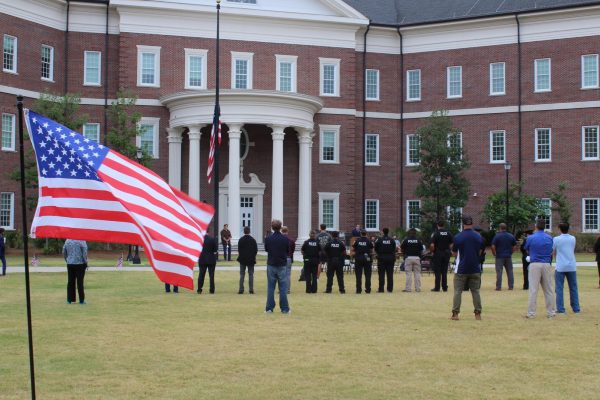
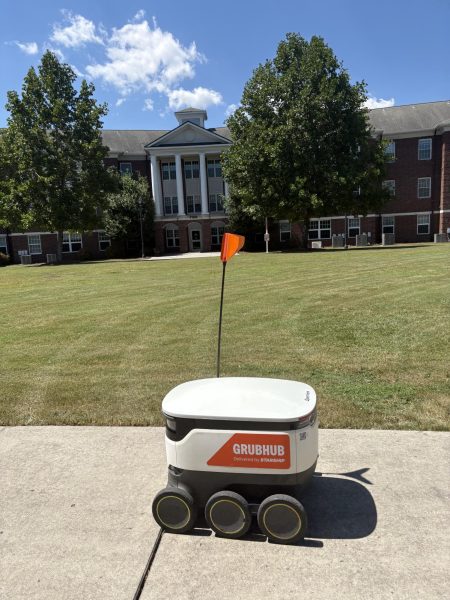


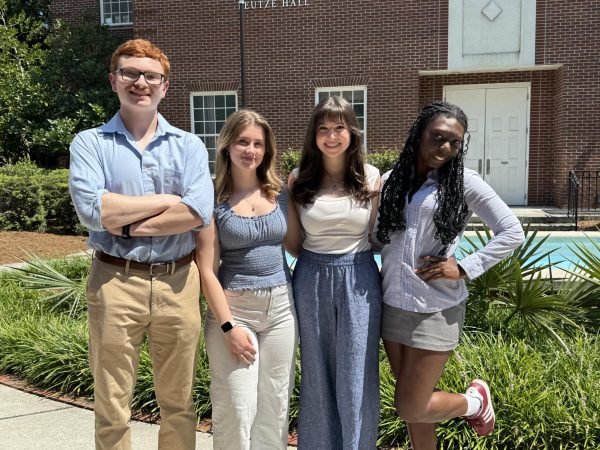
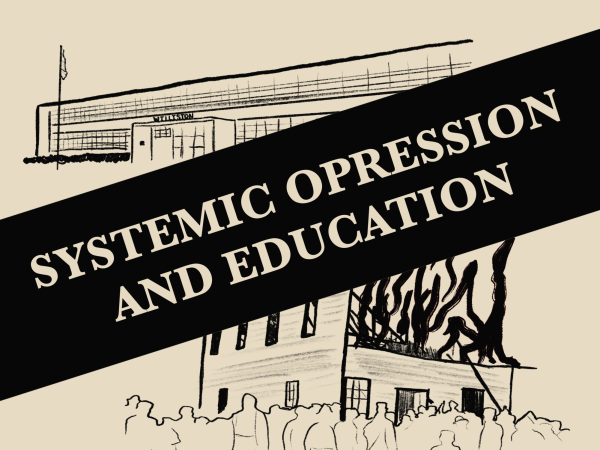

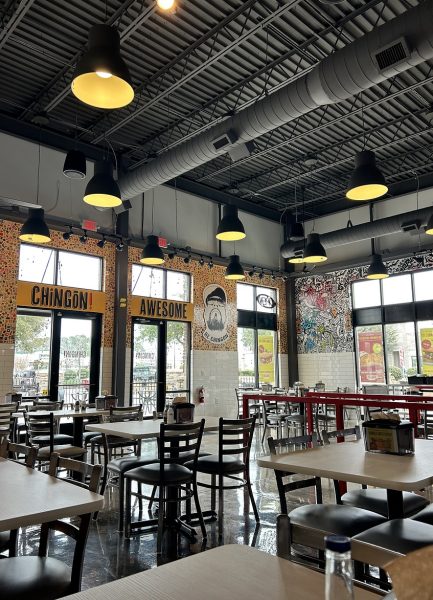

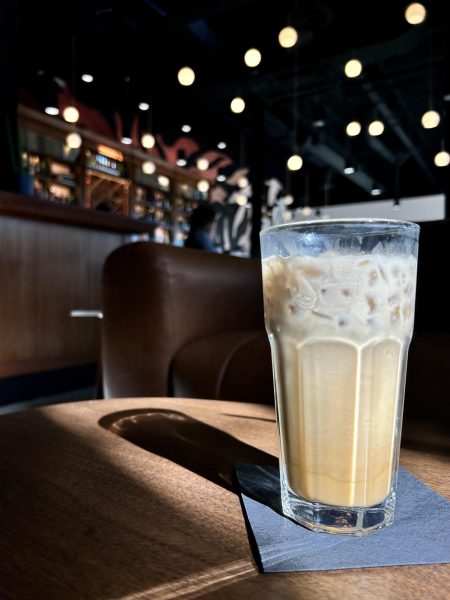
Kay • Oct 11, 2020 at 4:31 pm
I’m glad you exposed this archaic custom for what it is. Whenever my girlfriend and I were in high school in the 70’s, we were passed over, as I was poor and she was Jewish. They conned us into doing all these money-raising activities, like selling donuts door -to-door, with a winked promise that we would become a Belle. We were not chosen, in spite of all our hours of work. This blatant act of snobbery still irks me today.
Cee • Apr 12, 2022 at 2:57 pm
I grew up outside of Wilmington. Family mixed with African, Indian and white. Did not seem much different. We all knew without a doubt that it was not a festival for us. We knew it was not even worth a try to participate, nor did we want to due to what the era represented for us. I understand people like their traditions but when it reminds others of how this city, country was built on the backs of my ancestors if a hard pill to swallow. I understood from my grandparents (as the Azaleas bloomed they knew its was time to say good bye to love ones) this was a time slave owners also bought slaves to the market to be auctioned off.
Something to ponder is: How do we celebrate Azaleas, Elites and Belles and leave a culture of people that made it what it is?
I am not looking for an answer but dialog.